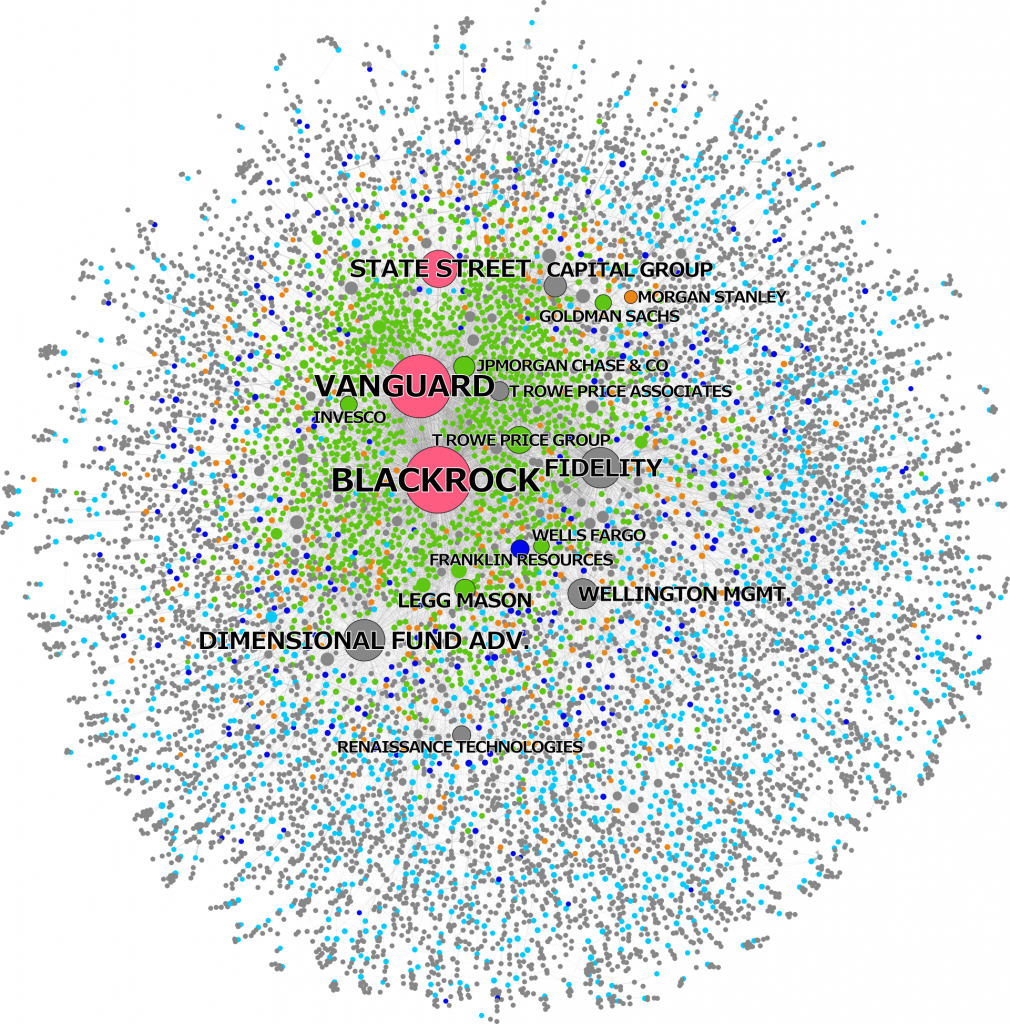Since 2008, a massive shift has occurred from active towards passive investment strategies. This burgeoning passive index fund industry is dominated by BlackRock, Vanguard, and State Street, which we call the ‘Big Three’. In a new working paper CORPNET shows that already in 40 percent of all listed U.S. corporations the Big Three together constitute the largest shareholder — and even in 88 percent of the S&P 500 firms. This re-concentration of ownership is unprecedented and unlike the earlier ascent of actively managed mutual funds, such as Fidelity, is likely here to stay.

In contrast to active funds, the Big Three hold illiquid and permanent ownership positions, which give them stronger incentives to actively influence corporations. An analysis of the voting records on shareholder meetings reveals that the Big Three indeed utilize coordinated voting strategies but generally vote with management, except at director (re-)elections. Private engagements with management represent an important channel through which the Big Three exert influence.
Moreover, BlackRock, Vanguard, and State Street are arguably exerting ‘hidden power’ because company executives are likely to internalize their objectives. Finally, we find indications that this development entails new forms of financial risk, including anticompetitive effects and investor herding.
Read the entire article here.